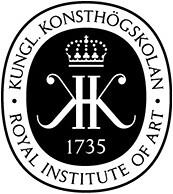Application deadline: May 7, 2018, 1pm
Flaggmansvägen 1
SE-111 49 Stockholm
Sweden
T +46 8 614 40 00
info@kkh.se
The struggle of decolonization, once primarily located outside of Europe, has today moved within its borders and peripheries. What the media calls the “refugee crisis” is, in reality, the incapacity of Europe to come to terms with five hundred years of colonialism. It is not possible to understand today’s displacement of people, flows of migration, nor contemporary fascism, without a thorough knowledge of Europe’s colonial heritage. The course proposes an innovative, comparative and interdisciplinary approach to the study of colonial architecture, expanding on the notion of colonial space to interrogate present realities. The course has two main areas of investigation: looking back into the past through an exploration of the ways in which colonial architecture was re-used during the process of decolonization; and looking forward into the future through a study of spaces of resistance within European cities.
The focus of this year will be the afterlife of Italian fascist colonial architecture. Under the fascist regime between the two world wars, Italy built a vast number of public buildings, housings and monuments; an architectures that has helped influence and shape Italian cities as well as cities such as Asmara, Addis Ababa, Rhodes and Tripoli. In Italy the amnesia of Italian colonization paradoxically corresponds with the well-preserved and continually used fascist architecture. With the re-emergence of today’s fascist ideologies in Europe, and the arrival of populations from north and east Africa, it becomes urgent to ask: what kind of heritage is the fascist heritage? How do the material traces of the Italian empire today acquire different meanings in the context of migration from the ex-colonies? Should this heritage be demolished, simply reused or re-oriented towards other aims including reparations from Italian colonization?
The course revolves around an intensive program of seminars, lectures, studios, mentorships, reading sessions, site visits, and walks, which are scheduled three days every other week, spaced out by a week where participants independently develop work, research, write, read, draw, interview, and conduct site visits. Students work collaboratively during the academic year towards a research-based artistic intervention.
This second year course in Decolonizing Architecture is part of a sequence of yearlong courses led by Alessandro Petti, professor in Architecture and Social Justice at the Royal Institute of Art in Stockholm. The course is based on the work developed at DAAR (Decolonizing Architecture Art Residency) an architectural collective founded over a decade ago in Palestine, and on the teaching philosophy experimented in Campus in Camps, an educational program established in Palestinian refugee camps. Advisers and invited guests include: Sandi Hilal, Rahel Shawl, Walter Mignolo, Vittoria Capresi, Lorenzo Pezzani, David Rifkind, Daniel Urey, Suad Amery, Giorgio Agamben, Galit Eliat, Ilana Feldman, Sari Hanafi, Thomas Keenan, Vasif Kortun, Salwa Makdadi, Achille Mbembe, Rasha Salti, Pelin Tan and Eyal Weizman. For more information please visit the course web page and for specific enquires contact the course assistant.
Apply via this link: ansok.kkh.se
About the Royal Institute of Art in Stockholm
The Royal Institute of Art is a leading art institution of higher education located in Stockholm that offers undergraduate and postgraduate studies in Fine Arts and Architecture.



